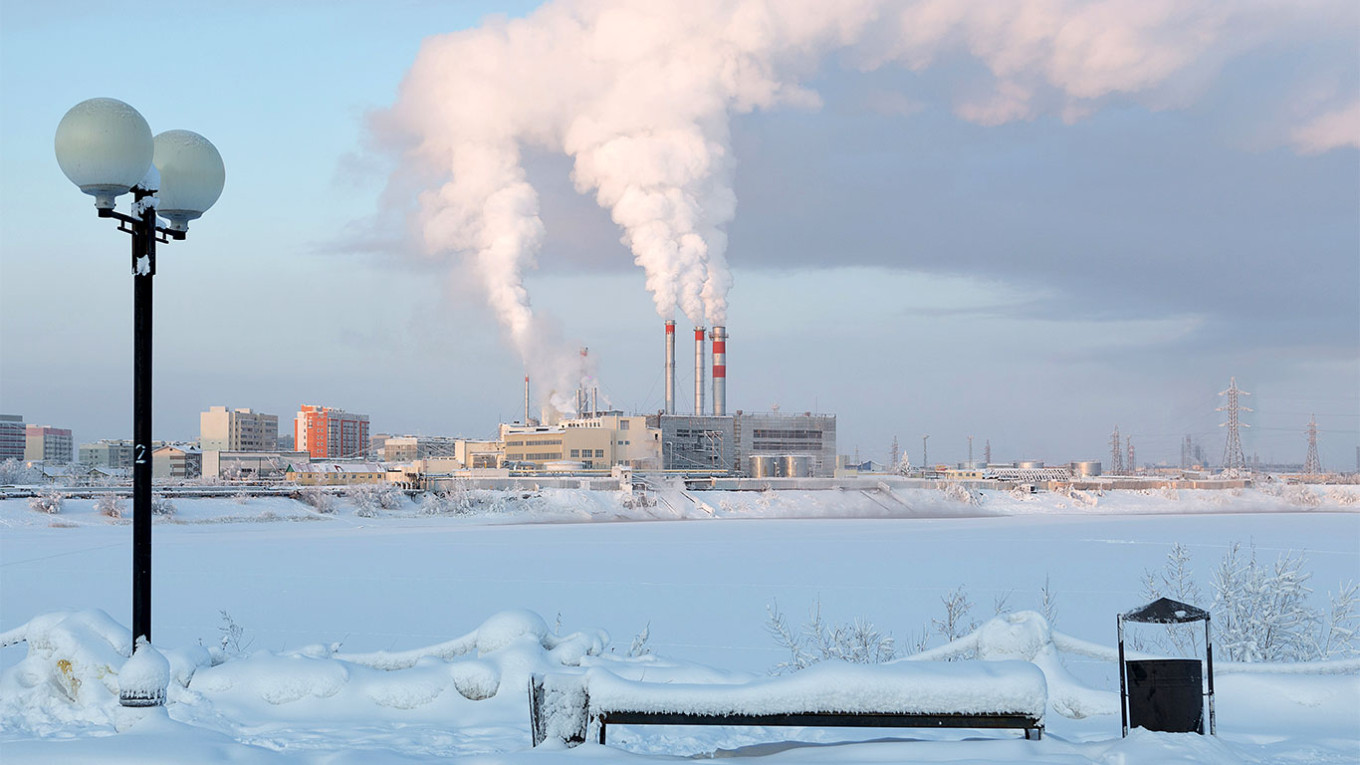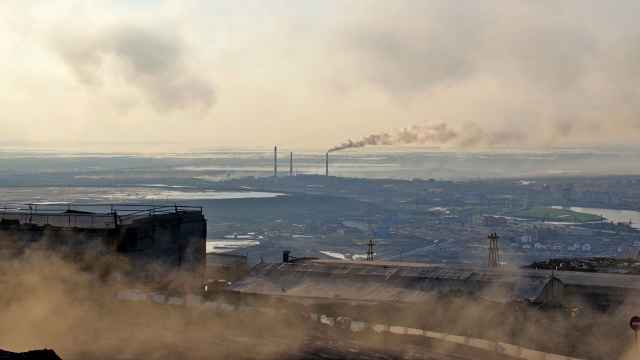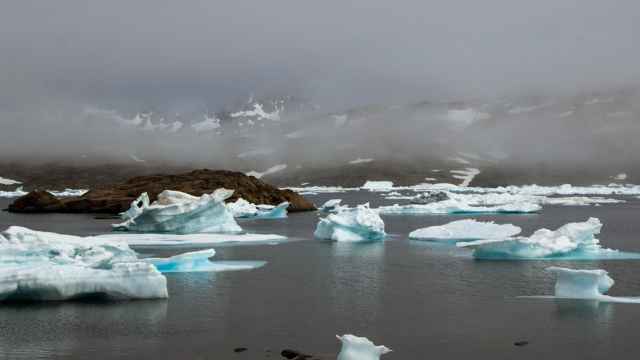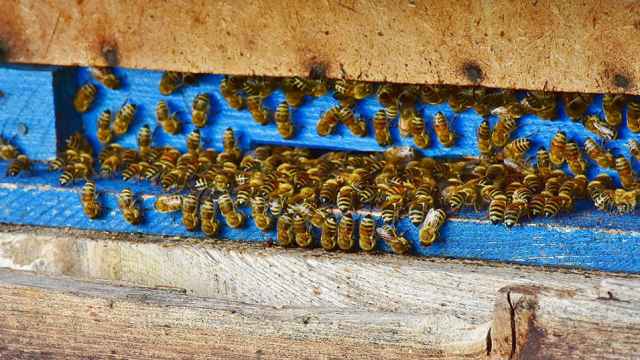Russia’s first-ever climate litigation case is currently moving through the European Court of Human Rights as activists make a last-ditch attempt to challenge the president and the government for failing to meet global climate goals.
The case, brought by Russia’s oldest independent human rights organization the Moscow Helsinki Group, along with the environmental group Ecodefense and 18 individuals, signals how wide-reaching the trend of climate litigation has become, even in countries with dysfunctional judicial systems.
On Sept. 16, 2022, Russia's Supreme Court received an unexpected appeal: 20 plaintiffs turned to the highest judicial institution in the country to challenge the actions of President Vladimir Putin and the government concerning climate policy.
In a groundbreaking move in a country where climate change sits at the margins of public discourse, the Moscow Helsinki Group, Ecodefense and 18 individuals initiated the first-ever climate litigation case in Russian history.
Contesting Putin’s decree on greenhouse gas emissions reductions by 2030 and the government's low-carbon strategy by 2050, the plaintiffs argue that Russia, the world’s fourth-largest greenhouse gas emitter, was aware of the risks posed by climate change for decades — yet failed to adequately respond.
Meanwhile, the planet’s heating is already acutely affecting Russia, bringing more intense heat waves and wildfires, extreme weather, the spread of infectious diseases and the thawing of permafrost, among other consequences.
The plaintiffs said Russia’s government was violating citizens’ constitutional rights and putting an “indeterminate number” of lives at risk, and called for stronger emissions-reduction measures in line with the 2015 Paris Agreement, which aims to keep warming within 1.5 degrees Celsius above pre-industrial levels.
When the Supreme Court rejected the lawsuit in a matter of days, refusing even to consider its merits, the plaintiffs were not surprised, having had little hope in the Russian justice system from the very beginning.
"Russian courts do not have the independence needed … to take on such cases,” Russian human rights lawyer Grigory Vaypan told The Moscow Times. “It's a politically sensitive case for the court because it entertains the possibility of making a decision against the president and the government.”
“Considering that the foundation of the Russian economy is fossil fuels, it takes a lot of courage if you are a Russian judge to tackle such a case,” he said. “We did not see such courage.”
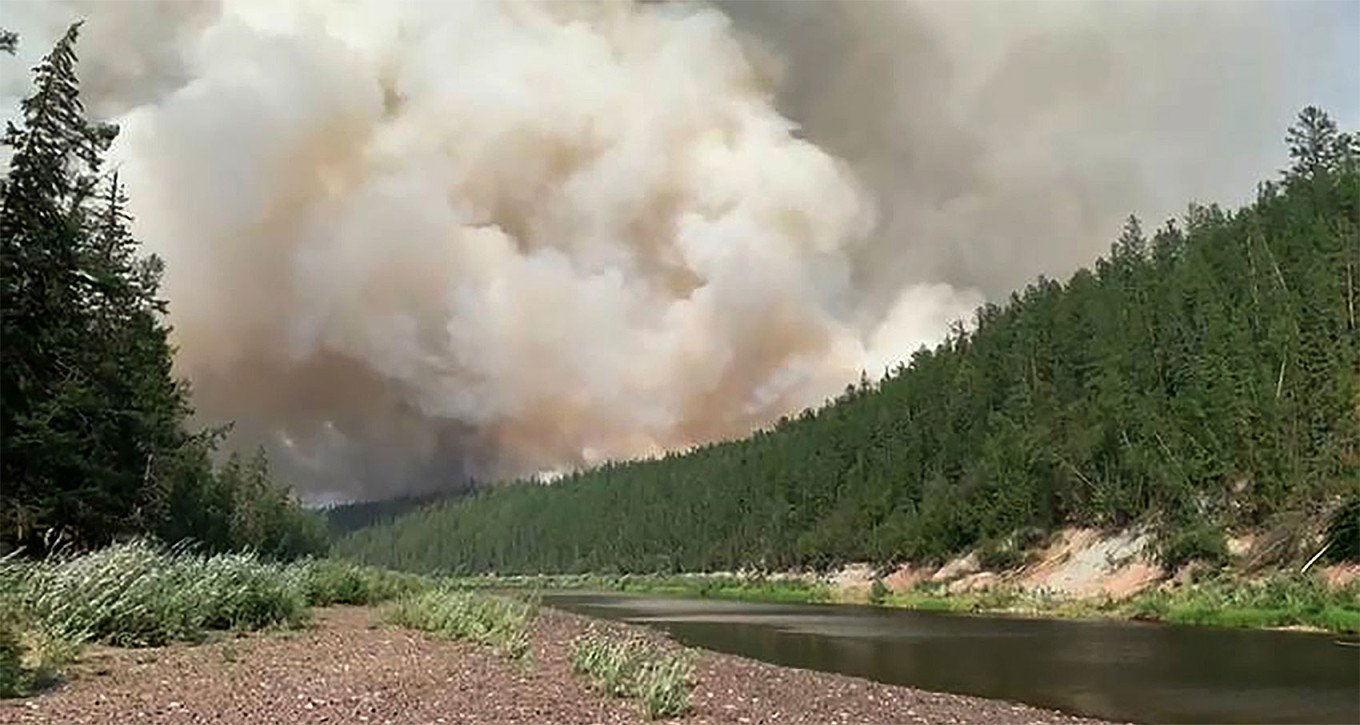
In response to the Russian court's dismissive handling of the climate case, the group went to its Plan B: lodging the same lawsuit with the European Court of Human Rights (ECHR) in September 2023.
Although Russia terminated its involvement with the European Convention on Human Rights in September 2022, the case remains admissible to the Strasbourg-based court as it was filed domestically before the termination date. Additionally, it pertains to potential violations with negative effects that continue to the present.
"We see a very straightforward approach embedded in any strategy adopted by the Russian government. It aims at maintaining business as usual, which means increasing the extraction and burning of fossil fuels, no matter what,” Ecodefense co-chairman Vladimir Slivyak told The Moscow Times. “This directly contradicts the very essence of combating climate change and preventing its catastrophic consequences."
In clear conflict with the IPCC’s recommendations of reducing greenhouse gas emissions by over 40% by 2030 to limit global warming to 1.5 C, the presidential decree contested by the plaintiffs allows for a rise in emissions this decade.
“This is, in essence, a grand manipulation. Russian authorities continue to assert to the world that they are complying with the Paris Agreement and decreasing emissions while instead they are increasing them. So, the Russian climate case simply screams its obviousness," Vaypan said.
The lawsuit also stands out because several plaintiffs faced repressions from the Russian government after taking legal action domestically. Climate and political activist Arshak Makichyan was stripped of his Russian citizenship last year, while the Moscow Helsinki Group was dissolved in January — complicating its efforts to be an applicant to the ECHR.
"We are filing a complaint with the ECHR not only regarding the main [climate] issue but also regarding the state's violation of our plaintiffs' right to file a complaint with the ECHR [by shutting them down],” Vaypan said. “Russia differs from other countries where climate litigation is underway in that instead of addressing climate change, it persecutes those attempting to draw attention to this problem."
Pavel Sulyandziga, a representative of the indigenous Udege nation and president of the Batani International Indigenous Fund for Development and Solidarity, left Russia seven years ago due to criminal cases related to his human rights activism. He felt compelled to join the lawsuit nonetheless, recognizing that climate change disproportionately impacts indigenous communities.
On the frontlines of global warming in the Russian Arctic, indigenous peoples are already witnessing changes in their surrounding environment. These include sharp temperature fluctuations affecting their ability to safely travel across frozen waterways, or winter rains which cover snow with ice and make it impossible for reindeer to graze.
“In Yakutia and on the Taimyr Peninsula, representatives of the indigenous community have faced the disappearance of lakes where they used to fish," Sulyandziga told The Moscow Times. “Hunters and reindeer herders suspect that the glaciers at the bottom of the lakes have melted, causing the water to simply vanish."
He also noted the emergence of previously unseen small trees in the Russian tundra, which is altering the migration patterns and traditional orientation of indigenous peoples.
All these changes have profound impacts on the traditional way of life for these communities, but the Russian government “hardly thinks about this issue,” Sulyandziga concluded.
However, Economic Development Minister Maxim Reshetnikov said in September that the country plans to update its 2030 greenhouse emissions reduction goal next year. He added that climate change is “one of the long-term global challenges” on which the Russian president, government and relevant agencies are focusing.
"Despite the sanctions, we maintain the pace of work on this [climate] track. It's a cross-cutting priority that affects investment growth, enhances corporate cooperation and drives innovation," Reshetnikov said.
With actual progress on Russia’s climate targets yet to be seen, the plaintiffs are not content with officials’ promises. And amid escalating pressure on environmental activism in recent years, the ECHR could be the activists’ last resort to make Russia’s leadership take the climate crisis seriously — lest they are forced to wait for a future government.
"We don't expect the current Russian authorities to comply with the ECHR's decisions. But in our view, it's essential not to conflate the current Russian government with Russia as a state, which is a party to the UN Framework Convention on Climate Change and the Paris Agreement,” Vaypan said.
“If the European court instructs Russia as a state to ensure a reduction in emissions, that obligation will persist regardless of the current Russian authorities' stance."
An expert in the field, who requested anonymity for security reasons and who was not involved in the lawsuit, noted that assessing the legal consequences of the lawsuit remains challenging given the present circumstances.
However, the expert underscored the case's significance in shaping societal attitudes and values regarding climate change.
“[These values] should become dominant in society,” they said. “Without them, any legal decisions or business practices in the field lose their effectiveness.”
The first climate rulings from the ECHR, which is currently considering several climate cases, could significantly impact global climate debate and policies. Likewise, the potential ECHR ruling stands to impact Russia, even though the country is formally removed from the court.
"The point [of the case] is that the future will come,” Slivyak said.
“And I believe that it is the not-so-distant future when Russia will have to shape a sound climate policy. If there is an ECHR decision at that time, it could prove very useful.”
A Message from The Moscow Times:
Dear readers,
We are facing unprecedented challenges. Russia's Prosecutor General's Office has designated The Moscow Times as an "undesirable" organization, criminalizing our work and putting our staff at risk of prosecution. This follows our earlier unjust labeling as a "foreign agent."
These actions are direct attempts to silence independent journalism in Russia. The authorities claim our work "discredits the decisions of the Russian leadership." We see things differently: we strive to provide accurate, unbiased reporting on Russia.
We, the journalists of The Moscow Times, refuse to be silenced. But to continue our work, we need your help.
Your support, no matter how small, makes a world of difference. If you can, please support us monthly starting from just $2. It's quick to set up, and every contribution makes a significant impact.
By supporting The Moscow Times, you're defending open, independent journalism in the face of repression. Thank you for standing with us.
Remind me later.


